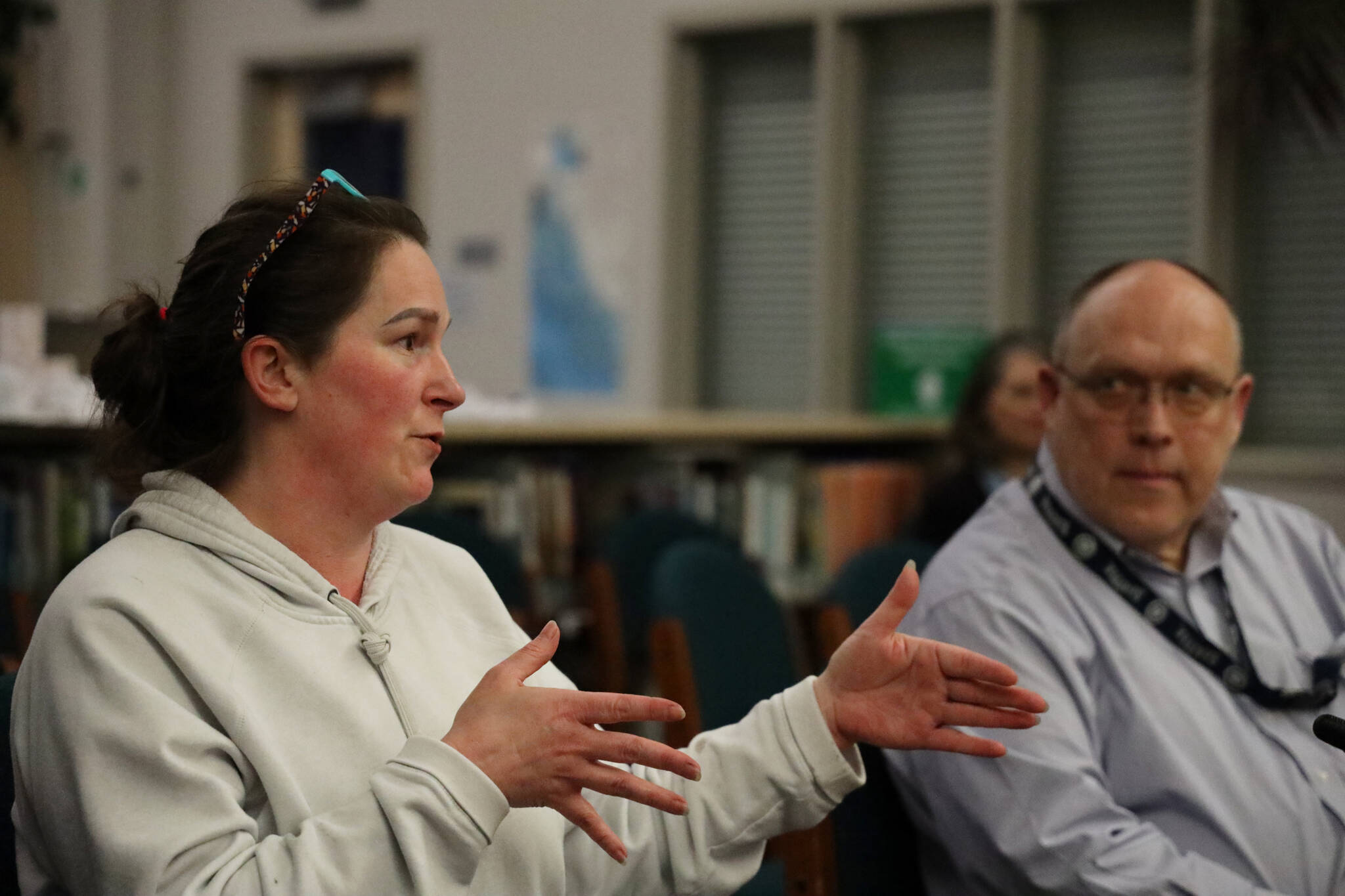Juneau students may be hearing school and alarm bells later in the morning next school year after a proposal for a once-weekly change to school start times was discussed Tuesday during the Juneau School Board’s regular meeting.
Under the proposed changes, all students would begin classes 30 minutes later than a school’s typical start time on Wednesdays. The change would go into effect in fall 2023 and continue throughout the entire school year.
According to the proposal, that extra gap of time will allow district teachers to meet together for professional development and staff collaboration in light of the Alaska Reads Act, which is set to go into place at the beginning of the next school year. The Alaska Reads Act was signed into law last year and adds a handful of state educational requirements for teachers, including mandatory training and programs meant to improve literacy education for elementary students.
The proposed late-start time change to the Wednesday school schedule would run as follows:
— Elementary school start times would be 8:30 a.m. with a release time of 2:30 p.m.
—Middle school start times would be 9 a.m. with a release time of 3 p.m.
— High school start times would be 9:50 a.m. with a release time of 3:45 p.m.
A few board members expressed concerns about the gravity of the change, its potential negatives and the widespread effect on students, teachers and families in the district, along with outside factors like employers of parents and child care providers.
Board member Martin Stepetin said he is concerned that the addition of 30 minutes of time weekly is not enough time to actually allow teachers to digest the instructional material, and offered other ideas that involved quarterly or bi-semester periods of time instead.
“If we want to give teachers a real collaboration, we need to give them more time to do that — and I don’t think this is an amount of time to do that,” Stepetin said. “I don’t support the amount of time and frequency of this.”
However, district Superintendent Bridget Weiss pushed back, arguing the idea to implement an early release or late start isn’t a new idea to the district — which previously considered a change in 2017 — and shifts to start/release times have been successfully implemented by many districts in Alaska and across the country for decades.
“There’s no silver bullet, there is a right way to do this, but this is not a novel idea, it’s been done before,” she said, noting she has worked at multiple districts that do late starts/early releases.
Weiss said it’s clear there is a benefit to putting a greater amount of time aside for teachers, but how that change is implemented — or not — is up to the board to decide.
“It’s very, very clear that the countries with the highest achievement are those countries where they value and commit to large amounts of times where adults are working together without children,” she said. “It’s a challenge, it’s a dilemma and there is no right or wrong way — it’s just a matter of where you all land as for what is the best approach for us.”
Over the course of a multi-hour discussion, the majority of board members seemed to favor an early release rather than a late start, and Board President Deedie Sorensen said she thinks an early start will be better received by the community.
Virginia Behrends, a parent of four students in the district, gave public comment on the topic and said she would prefer an early release on Fridays, and believed it would be supported by other parents as well. She said she also supports Stepetin’s idea of prolonged meetings with less frequency.
The board’s student representative and junior at Thunder Mountain High School Elizabeth Djajalie told the board, after discussing the topic with the TMHS student government, that TMHS students were more supportive of an early release than a late start.
She said the student government argues that continuing a consistent morning start time throughout the week would make it easier for students to keep track of the change and that an early release would benefit students who have after-school jobs as well.
The school board will reconvene on the topic at its next regular meeting on June 13, where the possible change will have its final hearing and amendments to the current proposal — such as changing it to a late start or on a different day — can be made or considered.
• Contact reporter Clarise Larson at clarise.larson@juneauempire.com or (651)-528-1807.

